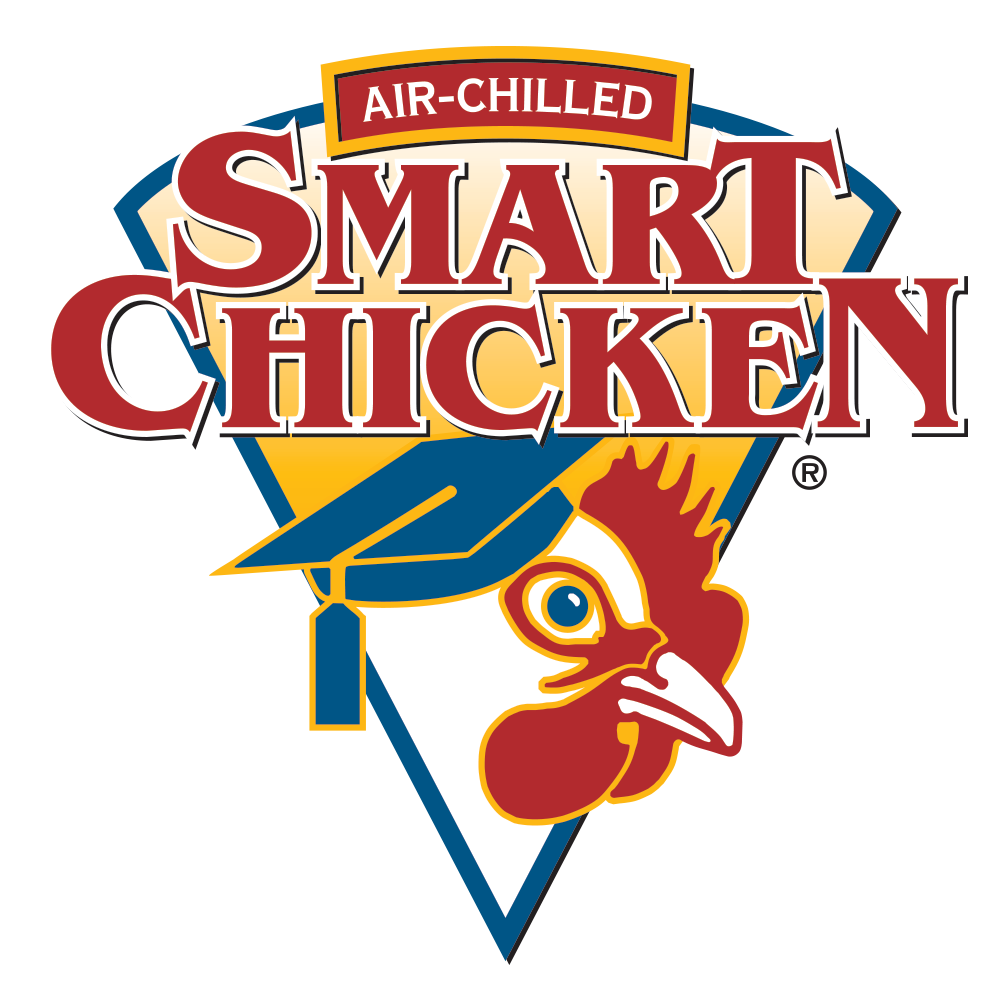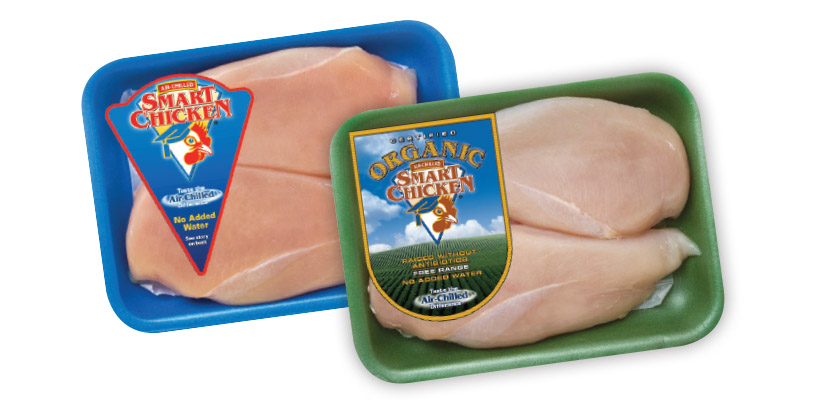9 Things to Consider When Buying Chicken
Being an informed shopper starts with knowing what goes into foods, something that’s not always straightforward with fresh chicken. Not only must you decipher the stamps, logos, and labels, it’s also important to consider aesthetic indicators of freshness.
1. APPEARANCE & AROMA
Fresh chicken should have a pinkish color. Avoid cosmetic damages, such as bruising or tears in the skin, which can affect the chicken’s quality and freshness. Chicken should also be plump; when you press against it, the meat should be somewhat resilient, resuming its shape after a few seconds. A clean, neutral aroma is also a good indicator of freshness.
2. PACKAGE LIQUID
Avoid chicken with excess liquid pooling in the package. Excess liquid is typically the result of the water immersion process commonly used to cool chickens to a safe temperature. Once in the tray, the chicken purges these fluids, diluting the flavor and producing a soggy texture.
3. CHILLING PROCESS
Air chilling is the superior alternative to water immersion chilling. A 100% USDA Verified Pure air chilling process circulates chickens through a series of chill chambers cooled with purified cold air, never exposing the chicken to chemicals during the chilling process. The end result is chicken with a fresh, undiluted flavor that cooks up more consistently and remains juicy. And because it’s not waterlogged, the skin also crisps up to a nice golden-brown.
4. TRIM
Trimming and deboning chicken at home requires diligent food safety practices to prevent contaminating kitchen surfaces and utensils. Look for chicken that’s already been trimmed so you don’t have to worry about it.
5. RAISED WITHOUT ANTIBIOTICS
Interpreting label jargon for antibiotic use can be confusing because chicken can be labeled as either antibiotic-free or raised without antibiotics. To label chicken antibiotic-free, the USDA requires the producer to abide by a withdrawal or waiting period to ensure antibiotics are no longer present. Raised without antibiotics assures consumers that chickens were never administered antibiotics at any point.
6. CERTIFIED ORGANIC
Organic certification requires that producers implement and follow ongoing compliance with several strict standards and practices. The USDA’s National Organic Program is the country’s most widely used and recognized organic program. Top-notch organic producers go a step further by also attaining the HFAC (Humane Farm Animal Care) certification, which enforces guidelines for humane handling at every step.
7. ENHANCED
This term indicates that the chicken was injected with or soaked in a solution during processing. Some processors inject the chicken with a flavoring solution, such as saltwater or chicken broth. These enhancements can add nitrates, nitrites, and MSG—and often raise the sodium level and take away from the natural flavor of the chicken.
8. VEGETABLE-FED
Chicken labeled as vegetable-fed is raised on a diet that never included animal by-products. Producers looking to cut costs and hasten growth rates may feed their chickens a diet that’s reinforced with animal by-products.
9. NON-GMO PROJECT VERIFIED
This seal appears on chicken that was raised and fed on a certified organic, certified non-GMO diet that’s in compliance with Non-GMO Project standards. The Non-GMO Project is a non-profit that provide thirdparty verification and labeling for non-GMO food and products. Non-GMO grains are a requirement for certified organic programs.

